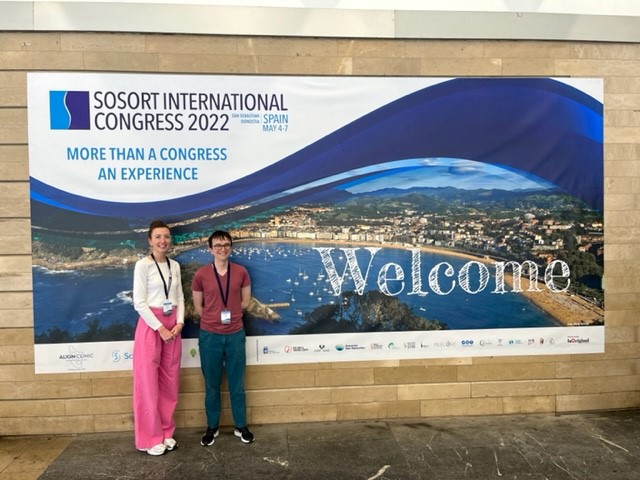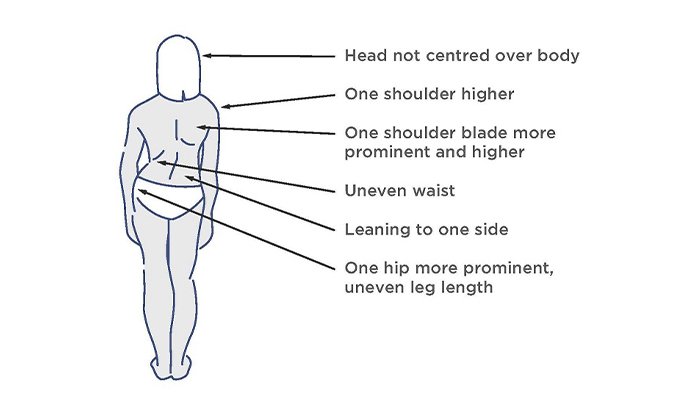
29 April 2022
Anna Courtney and George Coles, LOC’s clinical leads for the conservative treatment and management of scoliosis were very pleased to attend SOSORT’s conference earlier this month.
Founded in 2004 SOSORT (International Society on Scoliosis Orthopaedic and Rehabilitation Treatment) is a global collaboration of different professional and patient communities focussing on the advancement of the non-operative management of idiopathic scoliosis and other structural spine changes.
The conference was held in the lovely San Sebastian, and while the sunshine was missing the conference was fantastic. LOC met other orthotists from GOSH (Great Ormond Street Hospital), Queen Marys and Royal National Orthopaedic with the objective of working together to improve brace treatment for all.
We also spent a lot of time discussing scoliosis and spinal deformities with other medical professionals learning treatment protocols and outcomes from different techniques from all over world.
The education day this year focused on assessment and treatment for adult spinal deformities (ASD), which is becoming a growing concern in public health. Bracing is a hot topic and with summer here - the role that design and material science play in improving comfort and compliance is something we are particularly proud of with our LOC Scoliosis Brace.
Especially in young people, spotting the early signs of scoliosis is important – as is seeking early treatment. These are the warning signs to look out for:

Visual signs of Scoliosis
You can find out more about the visual signs of scoliosis here
If you think your child, adolescent or adult family member has scoliosis, you can contact LOC directly to arrange a consultation at one of our scoliosis clinics.
The operation used to treat severe scoliosis curves is typically spinal fusion surgery; a major procedure that involves moving muscles and realigning the skeleton into place. The curved, deformed vertebrae are fused together into a single bone, putting metal screws and rods into the spine to help straighten it. Surgery typically lasts between 4 and 8 hours depending on the severity of the curve. Bone graft is then taken from other parts of the body and used to cover the implants.
Following the operation, it is necessary to spend around a week in intensive care before returning home and the first few days are often uncomfortable. Most adolescents can expect to return to school from 2-4 weeks following surgery, but pain medication may be required up to 6 weeks following. A full recovery from the procedure can take up to a year, as it can take that long for the spine to heal fully.
Spinal fusion surgery causes the fused portion of the back to become permanently stiff, as a result, returning to sports that require large amounts of flexibility (ballet, yoga, gymnastics, dance) or contact (rugby, football, karate, hockey) may take longer.
Risks of spinal fusion surgery are like that of any other major procedure and include infection, blood clots and anaesthesia complications. The added risks include permanent nerve damage to the spine and paralysis.